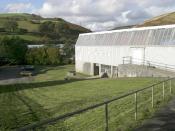There are many learning theories, each of them emphasizing various aspects of the teaching and learning process. I support the claim that adult learning should be looked at as a distinct style of learning and is unique to that of child and adolescence learning. Adults bring their life experiences into the classroom. They bring past knowledge as well as past biases and beliefs. Adult students want to be acknowledged as adults. They need to be actively involved in determining how and what they will learn, and they need active rather than passive learning experiences. Many adults are stressed from their daily lives responsibilities when they arrive for class and need a style of teaching that is creative, alive and humorous to hold their attention.
Adult educators must produce learning environments in which all learners can feel they are accomplishing something or benefiting some how. The types of benefits and interpretation of accomplishment can vary depending on a person's socio-economic background, culture, and situation in life, age or a variety of other variables.
Whether or not a learning experience is successful will depend on the adult educator's ability to understand the differences in people. Equally important is the personal experiences the educator has with a variety of participants and their characteristics. No one theory will fit every learning situation. There is an exception to every rule. There are, however, two theories that I feel closely supports my line of reasoning.
First is Knowles' theory of andragogy.
Andragogy makes the following assumptions about the design of learning: (1) Adults need to know why they need to learn something (2) Adults need to learn experientially, (3) Adults approach learning as problem-solving, and (4) Adults learn best when the topic is of immediate value (Knowles, 1984). Knowles endeavored to develop a theory that was...


